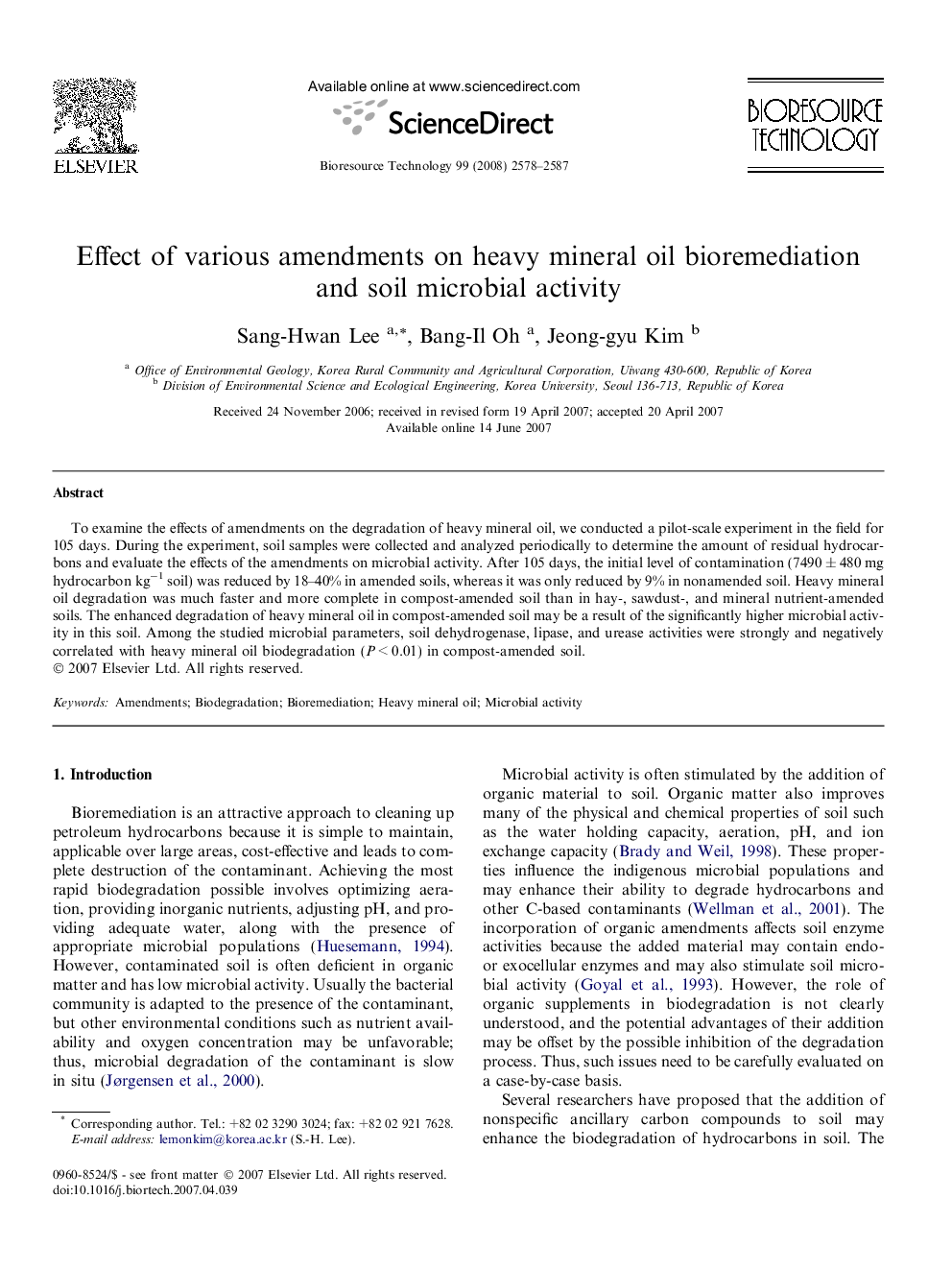| Article ID | Journal | Published Year | Pages | File Type |
|---|---|---|---|---|
| 685871 | Bioresource Technology | 2008 | 10 Pages |
To examine the effects of amendments on the degradation of heavy mineral oil, we conducted a pilot-scale experiment in the field for 105 days. During the experiment, soil samples were collected and analyzed periodically to determine the amount of residual hydrocarbons and evaluate the effects of the amendments on microbial activity. After 105 days, the initial level of contamination (7490 ± 480 mg hydrocarbon kg−1 soil) was reduced by 18–40% in amended soils, whereas it was only reduced by 9% in nonamended soil. Heavy mineral oil degradation was much faster and more complete in compost-amended soil than in hay-, sawdust-, and mineral nutrient-amended soils. The enhanced degradation of heavy mineral oil in compost-amended soil may be a result of the significantly higher microbial activity in this soil. Among the studied microbial parameters, soil dehydrogenase, lipase, and urease activities were strongly and negatively correlated with heavy mineral oil biodegradation (P < 0.01) in compost-amended soil.
